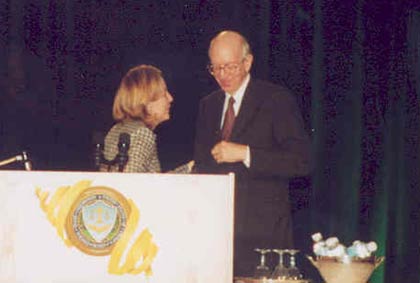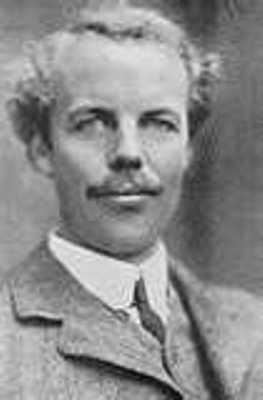|
Wage Regulation
Wage regulation refers to attempts by a government to regulate wages paid to citizens. Minimum wage Minimum wage regulation attempts to set an hourly, or other periodic monetary standard for pay at work. A recent example was the U.K. National Minimum Wage Act 1998. Germany is currently debating whether to introduce its own. Collective bargaining Collective agreements between trade unions and employers can regulate wages of workers according to the needs of the business. Arbitration Arbitration involves makes collective agreements between trade unions and employers legally binding and mediated through a state appointed judge or magistrate. Economic labour theory An economic analysis of the law holds very simply that any intervention in a contract between two parties creates an inefficient labour market. Wages kept artificially high, by imposing any administrative or monetary costs on employers distorts the labour market equilibrium. For a national economy in a globalise ... [...More Info...] [...Related Items...] OR: [Wikipedia] [Google] [Baidu] |
National Minimum Wage Act 1998
The National Minimum Wage Act 1998 (c. 39) creates a minimum wage across the United Kingdom.. E McGaughey, ''A Casebook on Labour Law'' (Hart 2019) ch 6(1) From 1 April 2025, the minimum wage is £12.21 per hour for people aged 21 and over, £10.00 for people aged 18-20, and £7.55 for people aged under 18 and apprentices aged under 19 or in the first year of their apprenticeship. (See Current and past rates.) It was a flagship policy of the Labour Party in the UK during their successful 1997 general election campaign. The national minimum wage (NMW) took effect on 1 April 1999. On 1 April 2016, an amendment to the act attempted an obligatory "National Living Wage" for workers over 25 (now extended to workers aged 21 and over), which was implemented at a significantly higher minimum wage rate of £7.20. This was expected to rise to at least £9 per hour by 2020, but in reality by that year it had only reached £8.72 per hour. Background No national minimum wage existed prior t ... [...More Info...] [...Related Items...] OR: [Wikipedia] [Google] [Baidu] |
Trade Unions
A trade union (British English) or labor union (American English), often simply referred to as a union, is an organization of workers whose purpose is to maintain or improve the conditions of their employment, such as attaining better wages and Employee benefits, benefits, improving Work (human activity), working conditions, improving safety standards, establishing complaint procedures, developing rules governing status of employees (rules governing promotions, just-cause conditions for termination) and protecting and increasing the bargaining power of workers. Trade unions typically fund their head office and legal team functions through regularly imposed fees called ''union dues''. The union representatives in the workforce are usually made up of workplace volunteers who are often appointed by members through internal democratic elections. The trade union, through an elected leadership and bargaining committee, bargains with the employer on behalf of its members, known as t ... [...More Info...] [...Related Items...] OR: [Wikipedia] [Google] [Baidu] |
Unemployment Rate
Unemployment, according to the OECD (Organisation for Economic Co-operation and Development), is the proportion of people above a specified age (usually 15) not being in paid employment or self-employment but currently available for work during the reference period. Unemployment is measured by the unemployment rate, which is the number of people who are unemployed as a percentage of the labour force (the total number of people employed added to those unemployed). Unemployment can have many sources, such as the following: * the status of the economy, which can be influenced by a recession * competition caused by globalization and international trade * new technologies and inventions * policies of the government * regulation and market * war, civil disorder, and natural disasters Unemployment and the status of the economy can be influenced by a country through, for example, fiscal policy. Furthermore, the monetary authority of a country, such as the central bank, ca ... [...More Info...] [...Related Items...] OR: [Wikipedia] [Google] [Baidu] |
Gary Becker
Gary Stanley Becker (; December 2, 1930 – May 3, 2014) was an American economist who received the 1992 Nobel Memorial Prize in Economic Sciences. He was a professor of economics and sociology at the University of Chicago, and was a leader of the third generation of the Chicago school of economics. Becker was awarded the Nobel Memorial Prize in Economic Sciences in 1992 and received the United States Presidential Medal of Freedom in 2007. A 2011 survey of economics professors named Becker their favorite living economist over the age of 60, followed by Kenneth Arrow and Robert Solow. Economist Justin Wolfers called him "the most important social scientist in the past 50 years." Becker was one of the first economists to analyze topics that had been researched in sociology, including racial discrimination, crime, family organization, and rational addiction. He argued that many different types of human behavior can be seen as rational and utility-maximizing, including those that ... [...More Info...] [...Related Items...] OR: [Wikipedia] [Google] [Baidu] |
Richard Posner
Richard Allen Posner (; born January 11, 1939) is an American legal scholar and retired United States circuit judge who served on the U.S. Court of Appeals for the Seventh Circuit from 1981 to 2017. A senior lecturer at the University of Chicago Law School, Posner was identified in '' The Journal of Legal Studies'' as the most-cited legal scholar of the 20th century. As of 2021, he is also the most-cited United States legal scholar of all time. He is widely considered to be one of the most influential legal scholars in the United States. Posner is known for his scholarly range and for writing on topics outside of law. In his various writings and books, he has addressed animal rights, feminism, drug prohibition, same-sex marriage, Keynesian economics, law and literature, and academic moral philosophy, among other subjects. Posner is the author of nearly 40 books on jurisprudence, economics, and several other topics, including ''Economic Analysis of Law'', ''The Economics of J ... [...More Info...] [...Related Items...] OR: [Wikipedia] [Google] [Baidu] |
Australian Labour Law
Australian labour law sets the rights of working people, the role of trade unions, and democracy at work, and the duties of employers, across the Commonwealth and in states. Under the ''Fair Work Act 2009'', the Fair Work Commission creates a national minimum wage and oversees National Employment Standards for fair hours, holidays, parental leave and job security. The FWC also creates modern awards that apply to most sectors of work, numbering 150 in 2024, with minimum pay scales, and better rights for overtime, holidays, paid leave, and superannuation for a pension in retirement. Beyond this floor of rights, trade unions and employers often create enterprise bargaining agreements for better wages and conditions in their workplaces. In 2024, collective agreements covered 15% of employees, while 22% of employees were classified as "casual", meaning that they lose many protections other workers have. Australia's laws on the right to take collective action are among the most restri ... [...More Info...] [...Related Items...] OR: [Wikipedia] [Google] [Baidu] |
Wages And Salaries
Wages and salaries are the remuneration paid or payable to employees for work performed on behalf of an employer or services provided. Normally, an employer is not permitted to withhold the wages or any part thereof, except as permitted or required by law. Employers are required by law to deduct from wages, commonly termed "withhold", income taxes, social contributions and for other purposes, which are then paid directly to tax authorities, social security authority, etc., on behalf of the employee. Garnishment is a court ordered withholding from wages to pay a debt. Wages and salaries are typically paid directly to an employee in the form of cash or in a cash equivalent, such as by cheque or by direct deposit into the employee's bank account or an account directed by the employee. Alternatively, all or a part may be paid in various other ways, such as payment in kind in the form of goods or services provided to the employee, (SNA 7.32-7.42) such as food and board. For tax purpose ... [...More Info...] [...Related Items...] OR: [Wikipedia] [Google] [Baidu] |
Public Economics
Public economics ''(or economics of the public sector)'' is the study of government policy through the lens of economic efficiency and Equity (economics), equity. Public economics builds on the theory of welfare economics and is ultimately used as a tool to improve social welfare. Welfare can be defined in terms of well-being, prosperity, and overall state of being. Public economics provides a framework for thinking about whether or not the government should participate in economic markets and if so to what extent it should do so. Microeconomic theory is utilized to assess whether the private market (economics), market is likely to provide efficient outcomes in the absence of governmental interference; this study involves the analysis of government taxation and government spending, expenditures. This subject encompasses a host of topics notably market failures such as, Public good (economics), public goods, externalities and Imperfect competition, Imperfect Competition, and the cr ... [...More Info...] [...Related Items...] OR: [Wikipedia] [Google] [Baidu] |





